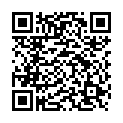|
|
|
| Module code: DFI-104 |
|
|
2VU (2 hours per week) |
|
2 |
| Semester: 1 |
| Mandatory course: yes |
Language of instruction:
German |
Assessment:
Written exam and oral presentation (each 50%)
[updated 15.04.2024]
|
DFMEES-104 (P610-0129) Electrical Engineering - Renewable Energy and System Technology, Master, ASPO 01.10.2019
, semester 1, mandatory course
DFI-104 (P610-0277) Computer Science, Master, ASPO 01.10.2018
, semester 1, mandatory course
DFMME-104 (P610-0438) Mechanical Engineering, Master, ASPO 01.10.2024
, semester 1, mandatory course
|
30 class hours (= 22.5 clock hours) over a 15-week period.
The total student study time is 60 hours (equivalent to 2 ECTS credits).
There are therefore 37.5 hours available for class preparation and follow-up work and exam preparation.
|
Recommended prerequisites (modules):
None.
|
Recommended as prerequisite for:
|
Module coordinator:
Dr. Julia Frisch |
Lecturer:
Dozierende des Studiengangs
[updated 29.04.2025]
|
Learning outcomes:
After successfully completing this module, students will be able to:
recognize communicative and (work) cultural causes for problems in intercultural situations
reflect on their own cultural imprint, especially with regard to communication behavior and (work) behavior in teams
develop solution strategies for challenges in multicultural work contexts
understand the work-cultural and communicative characteristics of the Arab world and can compare these to their own expectations of communication and work situations
[updated 15.04.2024]
|
Module content:
Consolidation of basic concepts and models from the subject areas of culture, communication and perception of others (alignment of students´ previous knowledge)
Conflict behavior and solution strategies in an intercultural work context (teamwork, hierarchies, understanding work and roles, metacommunication)
Cultural (self-)awareness as a key competence
Case studies and practical exercises
Non-European focus: the Arab world
[updated 15.04.2024]
|
Teaching methods/Media:
Lecturer presentations
(Interactive) exercises and case studies
Group work
Digital content via moodle
[updated 15.04.2024]
|
Recommended or required reading:
Will be announced in the course
Multimedia-supported teaching and learning material to intensify teaching will be provided in the course and via Moodle.
[updated 15.04.2024]
|

